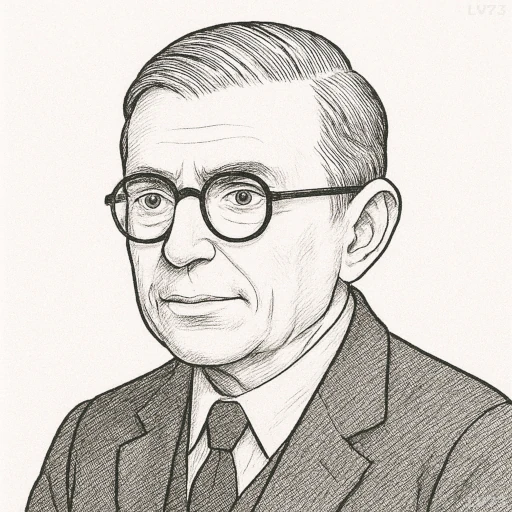“Existence precedes and rules essence.”

- June 21, 1905 – April 15, 1980
- Born in France
- Philosopher, novelist, playwright
table of contents
Quote
“Existence precedes and rules essence.”
Explanation
In this foundational statement of Sartre’s existential philosophy, he argues that human beings do not have a predetermined nature or essence. The phrase “existence precedes essence” means that a person first exists, and only through their choices, actions, and experiences do they define who they are. Sartre rejects the idea that humans have an inherent purpose or identity given to them by a higher power, society, or biology. Instead, we are born into the world as blank slates, and it is through our actions and decisions that we create our identity and meaning. This places the responsibility for defining ourselves squarely on the individual, emphasizing freedom and choice.
The second part of the phrase, “rules essence,” suggests that once we have chosen and defined ourselves through our actions, our essence—our identity and purpose—becomes shaped and directed by these choices. We are not defined by an innate purpose or external forces but by the way we engage with the world and the decisions we make. This idea challenges traditional views of human nature, particularly religious or essentialist beliefs that argue people are born with an intrinsic purpose or predefined essence.
In modern contexts, this quote speaks to the increasing importance of personal agency and self-determination in contemporary life. It aligns with the individualistic and autonomous ideals that many people strive for today, where identity is often seen as something to be constructed and evolved rather than something imposed. Sartre’s assertion encourages individuals to actively create their own meaning in a world that offers no inherent direction, empowering them to shape who they are through authentic choices and actions, free from the confines of traditional definitions or expectations.
Would you like to share your impressions or related stories about this quote in the comments section?
